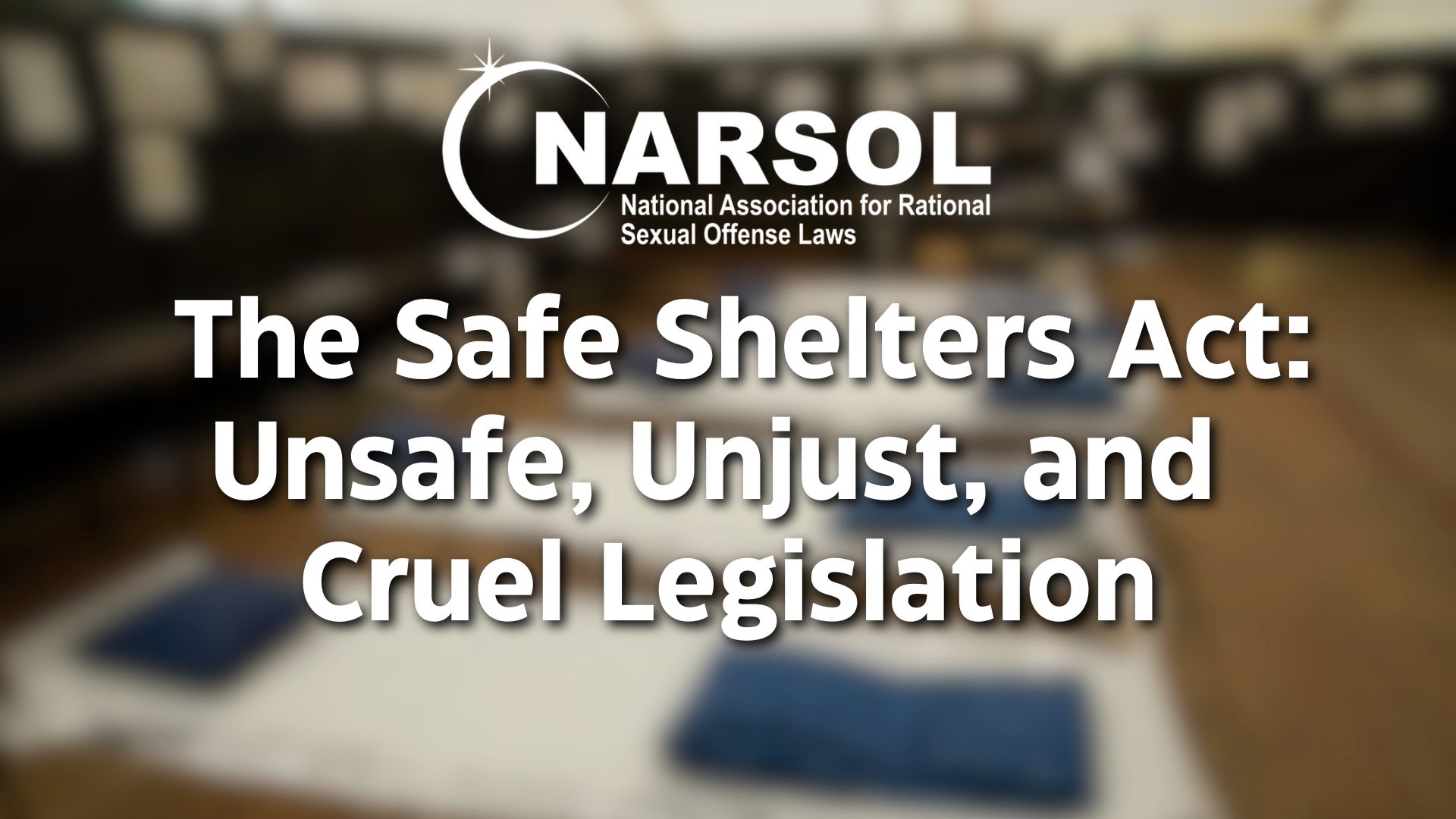S O registry a “a colossal failure of policy,” NARSOL’s FL affiliate leader tells the U.N.
October 16, Gail Colletta, president of the Florida Action Committee, NARSOL’s affiliate organization in Florida, spoke to the United Nations in Geneva, Switzerland, about the inhumanity of the registry and residency restrictions. She was allowed only two minutes to speak, and she certainly packed a lot into those two minutes.
affiliate organization in Florida, spoke to the United Nations in Geneva, Switzerland, about the inhumanity of the registry and residency restrictions. She was allowed only two minutes to speak, and she certainly packed a lot into those two minutes.
This is Gail’s speech, printed first at FAC.
Good morning, I am Gail Colletta, President of the Florida Action Committee (FAC). My remarks to the Committee will emphasize the sex offender residency restrictions (known as SORRs) and its effects on rendering people homeless.
United States federal law mandates that each state has its own Sex Offender Registry, which does not limit where registered persons can live. However, states have increasingly been developing SORRs.
Let me tell you about Ira A., a 71-year-old man diagnosed with cancer while being rendered homeless because of Florida’s SORRs. His doctors wouldn’t operate on him until he had a safe place to recover. Because of the state’s exclusion zones, the county Sheriff’s office rejected Ira’s right to access a rehabilitation center, an assisted living facility, a shelter, even his sister’s home. Ira was tragically killed by a hit and run driver who left him to die on the street. A man that old, sick, and frail should not have been homeless, especially when his family was ready and willing to care for him in their home. Sadly, this is not an isolated story.
In some cases, SORRs effectively banish registrants from living in entire cities.
The problems caused by SORRs are particularly severe for registrants reintegrating into society. FAC receives calls from probation officers and treatment providers to assist them in locating housing for registrants. The number of registrants increases annually, as registration is for life in Florida.
There is no empirical evidence to support that SORRs reduce sexual offending or recidivism. Rather, numerous studies, even by the U.S. Department of Justice, demonstrate that SORRs create barriers to stability and successful reentry.
In closing, let me emphasize that SORRs— as well as the entire sex offender registry scheme in the U.S. — reflect a colossal failure of policy – a failure, which the US Govt nonetheless continues to promote to other countries to implement. Not only do SORRs cause direct harm without any benefit to public safety, but SORRs breach several enumerated Human Rights Violations as outlined in our shadow report and, it is a cruel and inhumane system of law that forces human beings to live without dignity.
We ask this Committee to hold the U.S. Government accountable by condemning and eradicating these sex-offender residency restrictions for their consequential, often lifelong impacts on individuals’ rights to receive adequate, humane housing and stability.
Thank you for your time.



wow. nothing about servitude. or the value of registration to government, private enterprise and general public. article 8.
i feel disrespected.
cant milk a dead cow?
Awesome! Way to go, Gail!
The Human Rights Watch has identified the U.S. laws concerning the sex offender registry (SOR) as basic human rights violations as far back as 2007.
It’s really two-faced that our country can commit human rights violations while condemning human rights violations in other countries. I guess it’s “do as I say, but not as I do.
I am so grateful to hear that the registry is being called out for what it is — a useless waste of resources that severely impedes reentry for those caught in its snare. It is a lifelong punishment designed to shame. So many studies show how ineffective it is, yet we continue to perpetuate this by convincing people it makes them safer.
It’s easy to understand our government’s double-talk about human rights violations when you understand that we as registrants are no longer viewed as members of the human race deserving of these basic human rights.
PART 1 OF 2
It stinks, but that’s the reality of the mentality of those who support, promote, pass, and viciously defend the restrictions written into what is supposed to be a “simple civil regulatory scheme”.
PART 2 OF 3
A draconian scheme that is punished as bad if a violent felony against a person with grave bodily harm was committed when in reality it’s just a failure to do paperwork.
PART 3 OF 3